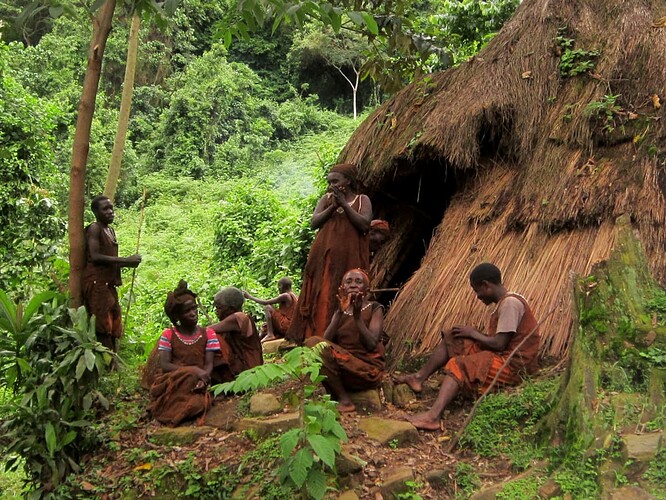Disclaimer : I want to start to discuss this topic with a disclaimer. I have nothing against capitalism nor the opposite. From one side, I am like most of you investing monthly on ETFs, buy and hold for FIRE (or other long-term projects) and I live likely like most of you. From the other side, I am also very aware of the scientific literature regarding the limits of Earth and the important of changing the current paradigm. I am looking to discuss the topic of sustainability from a scientific, political and socioeconomical perspective.
That said, it is becoming obvious that we are currently facing a global threat, that mainly involves the over-exploitation of Earth resources, the overuse of chemicals leading to the pollution of seas and lands and the use of an economic model that has been ignoring environmental factors for a long long time. The believe of infinite resources has been there for a while, and I recommend the book “Shrinking the Earth: The Rise and Decline of American Abundance”, which provides a nice historical perspective on how the discovery of America contributed to this vision of the world and the development of occidental economy.
There are growing initiatives from all sides that aims to change the current paradigm towards sustainability. From the political perspective we have the new EU Green Deal from the European Commission, which aims to have a toxic-free environment for 2050, to develop a circular economy,… From the scientific perspective, there is an increase of interest on these topics and also on the concept of degrowth (see the work of Giorgos Kallis, as an example). From the societal perspective, there is an obvious increase in awareness since the '70s. That said, it is also kind of obvious -for me- that the EU Green Deal will fail, that an economy based on degrowth won’t be adopted anytime soon and that the society won’t significantly change its pattern of consumption in the next decade(s).
I believe that one of the major topics here is to reach a sustainable agriculture. Feeding the increasing world population while not exceeding available resources is an important issue and it has been a major problem for a while already (I don’t need to cite Malthus, right?). During the ‘50-60s we developed the Green Revolution, which allowed to increase crop yield without increasing the use of lands. That was great but intensive agriculture led to land exhaustion and requires a lot of energy, so crop yields decrease again over time. In science, we are talking about a 2.0 (or rather 3.0) Green Revolution but that is still to come… Many people sustain the need of moving back to organic agriculture, but this switch will lead to over-deforestation, land use and erosion (Muller et al., 2017). At the same time, models like the one I cited here do not take into account the variability on crop yields over time in organic agriculture, which is a critical aspect.
From the degrowth movement there are a lot of interesting initiatives and I believe that some of them will be adopted at some point. Take a look to the Appendix A of the paper Fitzpatrick et al. (2022). In the financial sector of the Appendix, we see “Democratise and decentralize money”, “Tax justice for social ecological Justice”, “Support non-speculate currencies, credit, and exchange system” and “Socially responsible and ecologically sensitive investments”. As concrete examples on how to achieve this:
Capital gains and capital acquisition taxes; Financial transaction tax (e.g. EU Commission considering €10 per €10,000 transaction); Abolish tax havens and financial secrecy; Unitary tax on the profits of transnational firms to restrict tax dumping; Global standard for international tax and investment policies could be used to curb tax avoidance; Financial disobedience; Nationlise banks for social and ecological purposes; Dismantle and decentralise banking and financial institutions (e.g. Wall Street, big banks, stock investment); Institutionalise full reserve banking; Encourage fiscal disobedience; Carry out regular debt auditing; Create an independent authority to oversee public money creation; Progressive tax on profit and capital accumulation from all sources (e.g. buying and selling of real estate, stocks, foreign currencies, and other financial instruments).
I think that some of these examples are quite “extreme”, even if they are probably necessary. I also think that these iniciatives are very centered in developed occidental countries and that the needs of developed and developing countries are not the same. I read once: developing countries needs growth, while developed countries needs a better distribution of wealth (I unfortunately don’t have a reference for this).
Well, the aim of writing this whole text is to ask you a few questions:
-
Those working in finance (which is the topic I know the less), do you think that there is, currently, a real trend toward a more sustainable economy? (not taking into account greenwashing). Do you have of examples that really contributes to sustainability?
-
Those younger than 35yo or having kids, what is your point of view on these topics? Do you take into account sustainability in your daily life and, more particularly, into your investments? Do you expect to maintain your investments for the long run (20-30 years?)
-
To everyone, do you think the current strategies we have for FIRE and investing (mostly longterm investing in VT and other ETFs), will make sense in 10-20 years? We can’t obviously predict the future, it is just speculation.
References:
Muller, A., Schader, C., El-Hage Scialabba, N. et al. Strategies for feeding the world more sustainably with organic agriculture. Nat Commun 8 , 1290 (2017). Strategies for feeding the world more sustainably with organic agriculture | Nature Communications
Fitzpatrick, N., Parrique, T., & Cosme, I. (2022). Exploring degrowth policy proposals: A systematic mapping with thematic synthesis. Journal of Cleaner Production, 365, [132764]. https://doi.org/10.1016/j.jclepro.2022.132764
Worster, Donald, Shrinking the Earth: The Rise and Decline of American Abundance, New York, Oxford University Press, 2016. ISBN 978-0-19-984495-1.

